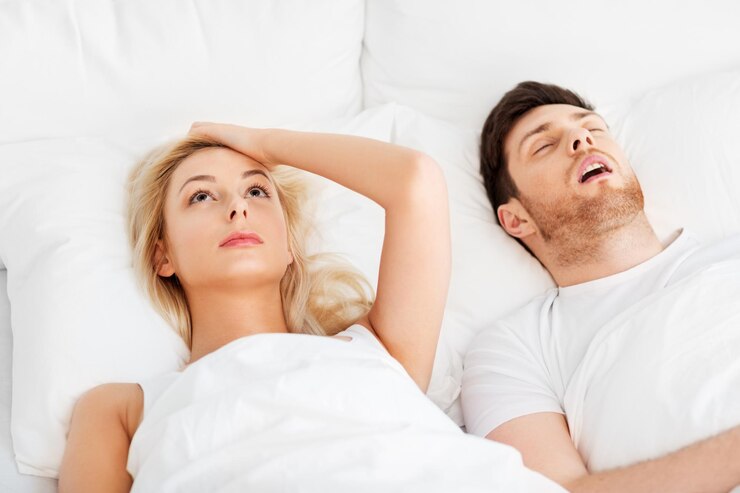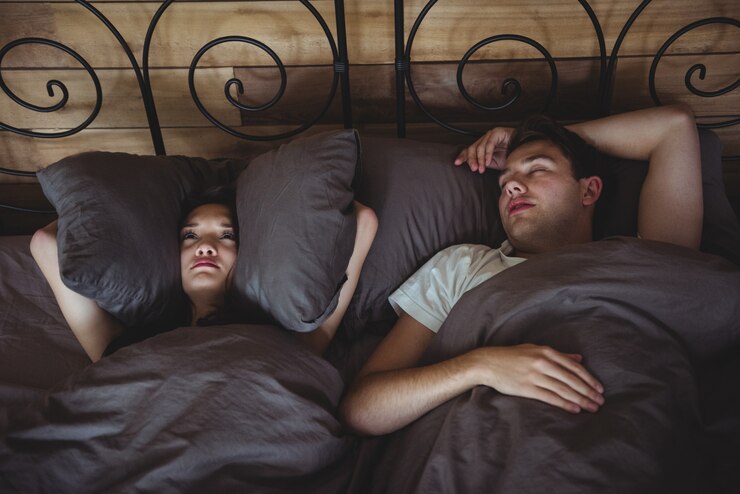Snoring is a common nuisance that affects millions of people worldwide, often disrupting sleep and causing frustration for both the snorer and their bed partner. However, for some individuals, snoring may be a symptom of a more serious condition known as obstructive sleep apnea (OSA).
Traditional treatments for sleep apnea, such as continuous positive airway pressure (CPAP) therapy, can be effective but may be cumbersome or uncomfortable for some patients. Fortunately, oral appliances have emerged as a revolutionary alternative, offering a comfortable and convenient solution for managing sleep apnea and improving sleep quality. In this article, we’ll explore how oral appliances are transforming sleep apnea care and providing relief for snorers and their partners.
Understanding Obstructive Sleep Apnea:
Obstructive sleep apnea is a sleep disorder characterized by repeated episodes of breathing cessation or shallow breathing during sleep. These episodes occur when the muscles in the throat relax excessively, causing the airway to become blocked or narrowed. Common symptoms of sleep apnea include loud snoring, gasping or choking during sleep, daytime fatigue, and morning headaches. Left untreated, sleep apnea can increase the risk of serious health problems, including hypertension, heart disease, stroke, and diabetes.
The Role of Oral Appliances:
Oral appliances, also known as mandibular advancement devices (MADs) or mandibular repositioning devices (MRDs), are custom-made dental devices designed to treat sleep apnea by repositioning the lower jaw (mandible) forward during sleep. By advancing the jaw, oral appliances help prevent the collapse of the soft tissues at the back of the throat, keeping the airway open and allowing for unobstructed breathing throughout the night. This helps reduce snoring and improve sleep quality for individuals with mild to moderate sleep apnea.
Advantages of Oral Appliances:
- Comfort and Convenience: One of the primary advantages of oral appliances is their comfort and convenience compared to traditional CPAP therapy. Many patients find oral appliances easier to tolerate and more comfortable to wear than CPAP masks, which can be bulky, restrictive, and cumbersome. Oral appliances are custom-fitted to each patient’s mouth for optimal comfort and can be easily inserted and removed for sleep, travel, and daily activities.
- Effectiveness: Numerous studies have demonstrated the effectiveness of oral appliances in reducing the severity of sleep apnea and improving sleep quality. Oral appliances are particularly well-suited for patients with mild to moderate sleep apnea or those who are unable to tolerate CPAP therapy. They offer a non-invasive and comfortable alternative for managing sleep apnea and alleviating symptoms such as snoring, daytime fatigue, and gasping or choking during sleep.
- Customization and Adjustability: Oral appliances are custom-made to fit each patient’s mouth and can be adjusted by a dentist or sleep specialist to ensure optimal comfort and effectiveness. Customization allows for precise positioning of the lower jaw and minimizes potential side effects such as jaw discomfort or tooth movement. Additionally, oral appliances can be adjusted over time to accommodate changes in the patient’s oral anatomy or treatment needs, ensuring long-term success in managing sleep apnea.
- Portability and Travel-Friendly: Unlike CPAP machines, which require access to electricity and a continuous supply of pressurized air, oral appliances are compact, lightweight, and portable, making them ideal for travel and on-the-go use. Oral appliances are easy to pack and transport, allowing patients to maintain their sleep apnea treatment regimen even when away from home. This makes oral appliances a convenient and versatile option for individuals with active lifestyles or frequent travel commitments.
Oral appliances have revolutionized the treatment of obstructive sleep apnea, offering a comfortable, convenient, and effective alternative to traditional CPAP therapy. With their custom-fit design, comfort, effectiveness, and portability, oral appliances provide relief for snorers and their bed partners and improve sleep quality for individuals with mild to moderate sleep apnea. If you or a loved one is struggling with snoring or sleep apnea, consider consulting with a dentist or sleep specialist to explore the benefits of oral appliance therapy and take the first step toward a restful night’s sleep.



